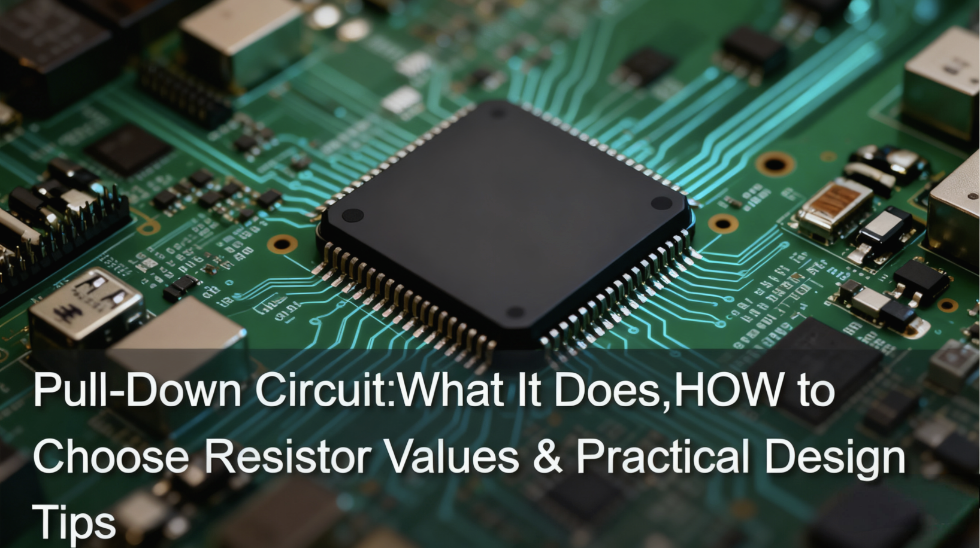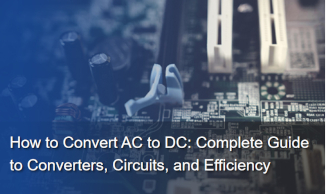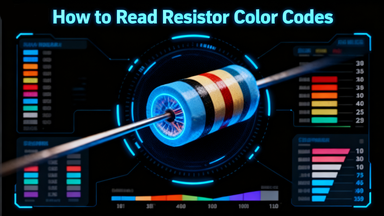Uninterruptible Power Supply Systems (UPS): Key Features and Technologies
In today's digital age, the need for reliable power is more critical than ever. Whether it's for data centers, hospitals, or home offices, uninterruptible power supply (UPS) systems play a vital role in ensuring continuous power availability. In this article, we will explore the key features and technologies of UPS systems, and highlight how Unikey, a global authorized distributor and stockist, can help you find the right UPS system for your needs.
What is a UPS System?
A UPS system is an electrical device that provides backup power when the main power source fails or drops to an unacceptable voltage level. Unlike generators, UPS systems offer near-instantaneous protection from power interruptions by supplying energy stored in batteries or capacitors.
Key Features of UPS Systems
1. Battery Backup
The primary feature of any UPS system is its ability to provide battery backup. The duration of backup power depends on the capacity of the batteries. High-capacity UPS systems can keep critical systems running for extended periods, ensuring no data loss or hardware damage during power outages.
2. Automatic Voltage Regulation (AVR)
Automatic Voltage Regulation (AVR) is a crucial feature that ensures the output voltage remains stable even when the input voltage fluctuates. AVR helps protect sensitive electronic equipment from voltage sags, surges, and spikes, maintaining a consistent power supply.
3. Surge Protection
UPS systems also offer surge protection, shielding connected devices from power surges caused by lightning strikes, electrical faults, or switching operations. This feature is essential for preventing damage to expensive and sensitive electronic equipment.
4. Communication Ports
Modern UPS systems come equipped with communication ports (USB, RS-232, Ethernet) that allow for monitoring and managing the UPS via a computer or network. This feature enables users to receive real-time status updates, configure settings, and perform remote shutdowns or restarts.
5. Energy Efficiency
Energy efficiency is an important consideration for UPS systems, especially for businesses looking to reduce operational costs. Energy-efficient UPS systems consume less power and generate less heat, leading to lower cooling requirements and energy bills.
6. LCD Display
An LCD display on a UPS system provides a user-friendly interface to monitor the system's status, battery level, load level, and other critical parameters. This feature allows for easy management and troubleshooting of the UPS system.
7. Scalability
For growing businesses, scalability is a key feature to consider. Scalable UPS systems allow for additional battery packs or power modules to be added, increasing the backup time and overall capacity as needed.
Why Choose Unikey for Your UPS System Needs?
Unikey is a global authorized distributor and stockist specializing in high-quality electronic components, including a wide range of Uninterruptible Power Supply Systems. As a trusted distributor, Unikey offers various models and brands of UPS systems to cater to different needs and applications.
Benefits of Choosing Unikey:
Wide Selection: Unikey provides an extensive inventory of UPS systems from multiple reputable brands, ensuring you find the perfect match for your requirements.
Quality Assurance: As an authorized distributor, Unikey guarantees genuine and high-quality UPS systems directly from the manufacturers.
Expert Support: Unikey's knowledgeable staff can help you select the right UPS system and provide technical support for installation and maintenance.
Global Reach: With a robust distribution network, Unikey ensures timely delivery and excellent customer service worldwide.
Conclusion
Uninterruptible Power Supply Systems (UPS) are essential for ensuring continuous power availability and protecting sensitive electronic equipment from power disturbances. Understanding the key features and advanced technologies of UPS systems can help you make an informed decision when choosing the right solution for your needs. With Unikey's wide selection and commitment to quality, you can trust them to provide the best UPS systems for your applications. Explore Unikey's offerings and secure your power supply today.
Power Supply Systems (UPS) FAQ1. What is a UPS (Uninterruptible Power Supply), and how does it work?A UPS is a backup power system that provides emergency power to devices when the main power source fails. It typically consists of a battery that kicks in when a power disruption occurs, allowing connected devices to continue operating without interruption or giving enough time for a safe shutdown.
2. What are the different types of UPS systems?There are three main types of UPS systems:Standby (Offline) UPS: Provides basic power protection, switching to battery power when a failure is detected.Line-Interactive UPS: Regulates power fluctuations while the system is running and provides battery backup during outages.Online (Double-Conversion) UPS: Continuously provides clean power from the battery, offering the highest level of protection against power issues.
3. How do I determine the right UPS capacity for my equipment?To choose the correct UPS capacity, calculate the total wattage of the equipment you want to support during an outage. Most UPS systems are rated in VA (volt-amps), so it's important to match your equipment's power requirements (in watts) to the UPS's capacity (in VA), typically using a power factor of 0.6 to 0.8.
4. How long can a UPS provide power during an outage?The duration, or runtime, of a UPS depends on the battery capacity and the load (how much power is being drawn by connected devices). A UPS with a higher capacity can support devices for longer, but typical systems may offer anywhere from a few minutes to an hour or more, giving enough time for a safe shutdown or power restoration.
5. What maintenance does a UPS system require?UPS systems require regular maintenance to ensure optimal performance. This includes:Battery checks and replacements: Batteries usually need replacing every 3-5 years.Dust cleaning and ventilation: Keep the unit clean and well-ventilated to prevent overheating.Monitoring: Periodic checks for alarms, error codes, or performance irregularities.Testing: Regular system tests to confirm functionality and battery readiness.





















